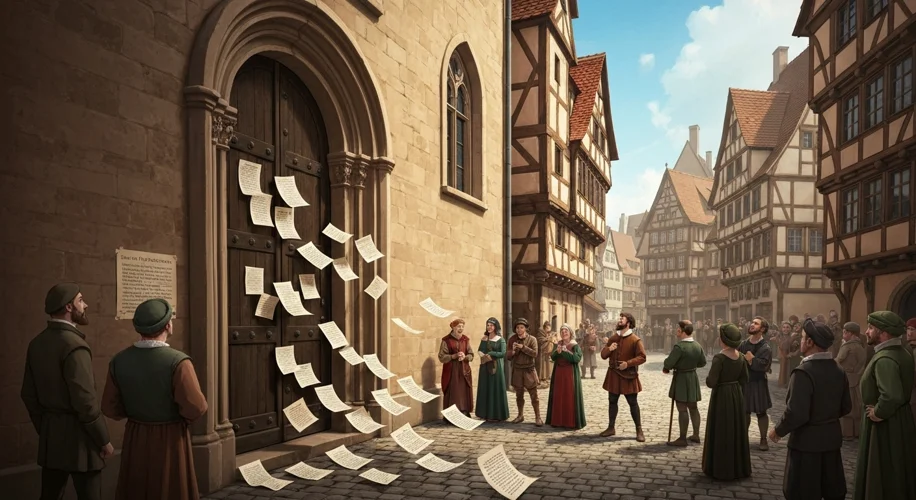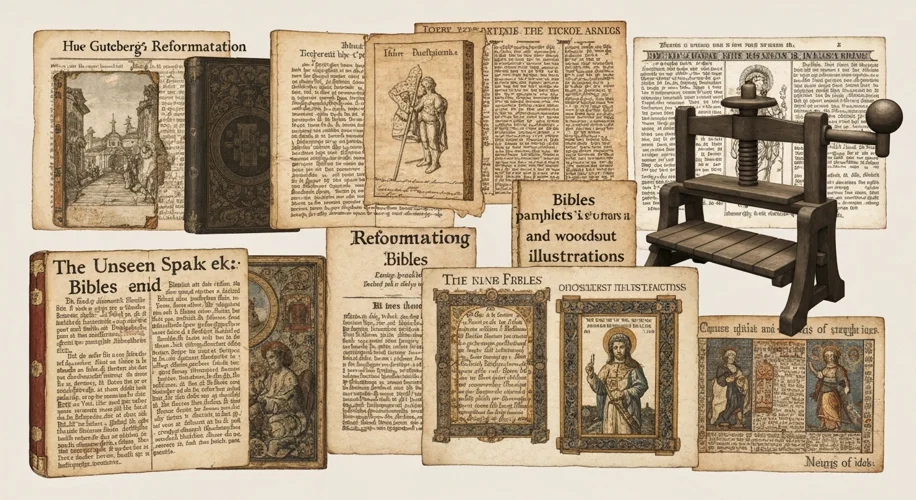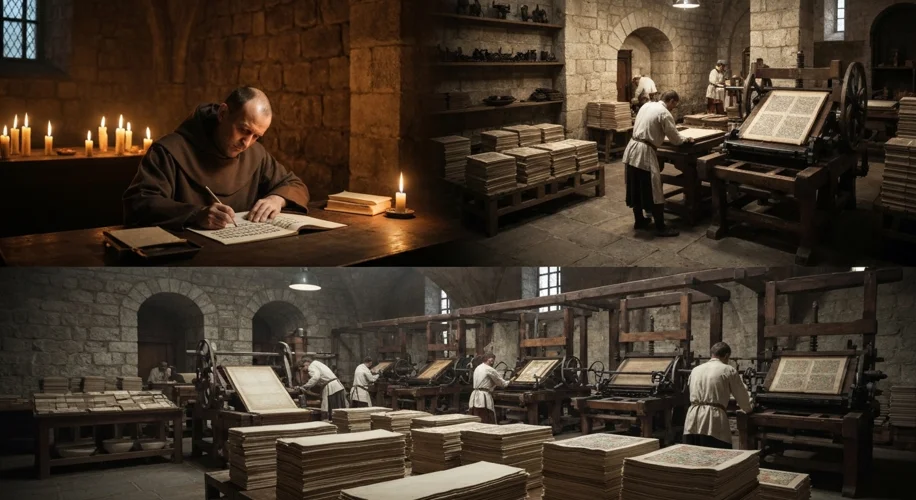Imagine a world where books were painstakingly copied by hand, each one a precious, expensive artifact. Information, especially religious texts, was a closely guarded treasure, accessible only to the wealthy elite and the clergy. This was the reality for centuries. Then, around 1450, in a workshop in Mainz, Germany, a quiet revolution began. Johannes Gutenberg, a goldsmith with a visionary spark, perfected a revolutionary invention: the movable-type printing press.
Before Gutenberg, the journey of a single book was arduous. Monks and scribes toiled for years, their quills scratching across vellum, creating a single copy of the Bible. This made books incredibly rare and costly. Literacy was low, and the Church held a near-monopoly on the interpretation of scripture. The common person’s understanding of God’s word was filtered through the pronouncements of priests.
Gutenberg’s press changed everything. Suddenly, texts could be reproduced with unprecedented speed and accuracy. Think of it like moving from a hand-cranked well to a modern water pump – the sheer volume and accessibility of information exploded. And what was the first major work to be printed in significant quantities? The Gutenberg Bible.

This wasn’t just about faster book production; it was about the democratization of knowledge. The ideas that had been simmering for decades, questioning the practices and authority of the Catholic Church, now had a powerful new vehicle. Enter Martin Luther. In 1517, Luther, an Augustinian monk and theologian, famously nailed his Ninety-Five Theses to the church door in Wittenberg. These theses, a fiery critique of practices like the sale of indulgences, were initially intended for academic debate.
But thanks to the printing press, they weren’t confined to dusty university halls. Luther’s Ninety-Five Theses were printed and reprinted, spreading like wildfire across Germany and then Europe within weeks. People who had never met Luther, who had no direct access to theological discourse, could now read his arguments for themselves. The press allowed his vernacular translations of the Bible to reach ordinary people, empowering them to engage with scripture directly, without the need for a clerical intermediary.

The Catholic Church, accustomed to controlling the narrative, found itself unable to stem the tide. The printing press became the engine of the Reformation. Pamphlets, treatises, and Bibles, written in German and other vernacular languages, flowed from printing presses across Protestant territories. This allowed reformers to bypass the Church’s established channels and speak directly to the populace. It fueled religious debate, fostered literacy, and enabled the rapid dissemination of new theological ideas.
The consequences were profound and far-reaching. The Reformation fractured the religious unity of Western Europe, leading to centuries of conflict and the rise of new denominations like Lutheranism, Calvinism, and Anglicanism. It also had a significant impact on political structures, challenging the temporal power of the Pope and contributing to the rise of nation-states. Furthermore, the emphasis on individual interpretation of scripture spurred a greater focus on education and literacy among the laity.
Ultimately, Gutenberg’s invention was more than just a technological marvel; it was a catalyst for seismic cultural and religious change. The printing press didn’t cause the Reformation, but it provided the essential infrastructure for its explosive growth. It transformed a localized theological dispute into a continent-wide movement, proving that sometimes, the most powerful revolutions are sparked not by swords, but by words, amplified by the humble, yet mighty, printing press.


